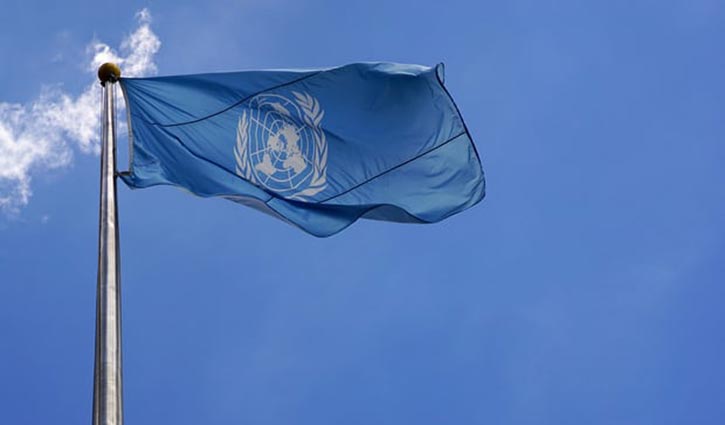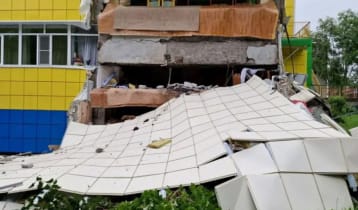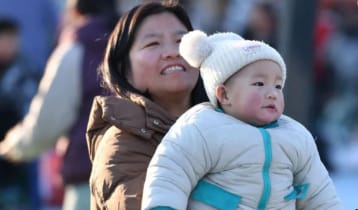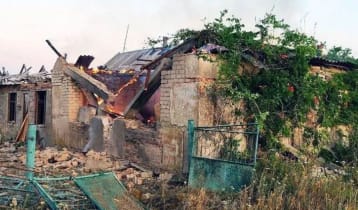Sexual harassment, assault rife at United Nations
3 || risingbd.com

International Desk: The United Nations has allowed sexual harassment and assault to flourish in its offices around the world, with accusers ignored and perpetrators free to act with impunity, the Guardian has been told.
Dozens of current and former UN employees described a culture of silence across the organisation and a flawed grievance system that is stacked against victims.
Of the employees interviewed, 15 said they had experienced or reported sexual harassment or assault within the past five years. The alleged offences ranged from verbal harassment to rape.
Seven of the women had formally reported what happened, a route that campaigners say is rarely pursued by victims for fear of losing their job, or in the belief that no action will be taken.
“If you report it, your career is pretty much over, especially if you’re a consultant,” said one consultant, who alleged she was harassed by her supervisor while working for the World Food Programme. “It’s like an unsaid thing.”
The UN conceded that under-reporting is a concern but said the organisation’s secretary general, António Guterres, has “prioritised addressing sexual harassment and upholding the zero tolerance policy”.
Employees working in more than 10 countries spoke to the Guardian on condition of anonymity, partly because they are precluded from talking publicly by UN rules governing staff, partly for fear of retaliation.
Three women who reported sexual harassment or sexual assault, all from different offices, said they had since been forced out of their jobs or threatened with the termination of their contract in the past year. The alleged perpetrators, who include a senior UN official, remain in their posts.
One of the women, who alleges she was raped by a more senior UN staff member while working in a remote location, said: “There are no other options to get justice, and I have lost my job too.”
She said that despite medical evidence and witness testimonies, an internal investigation by the UN found insufficient evidence to support her allegation. Along with her job, she says she has lost her visa and has spent months in hospital due to stress and trauma. She fears she will face persecution if she returns to her home country.
In internal documents seen by the Guardian, two of the women cite concerns with the investigations. They claim that the UN’s investigation’s team, the office of internal oversight services (OIOS), failed to interview key witnesses. They also say that transcripts contain errors and information from inquiries has been leaked.
Alleged perpetrators have been allowed to remain in senior positions – with the power to influence proceedings – throughout investigations.
One woman allegedly assaulted while working for the UN says she was told by her agency’s ombudsman that there was nothing more he could do to help her pursue a complaint, because he was being threatened by senior UN staff. Seven other alleged victims who spoke to the Guardian were told by an ombudsman or colleague that they should not try to pursue a complaint.
Four current or recent UN employees, including some who did not pursue formal complaints, said they were not given adequate medical care or counselling. One woman who lost her job said she saw three separate gynaecologists in the 24 hours following an assault, because the first medical team provided by the UN lacked the expertise to deal with such cases. She said she did not receive crisis rape counselling until six weeks later.
“I was in a manic state. I was fluctuating between being very precise and knowing exactly what to do and severe traumatic episodes while crying loudly,” she said.
A lawyer in such cases, who was initially consulted by the woman, said the victim had “a significant amount of evidence” and that, to date, she had been let down by the UN system.
The UN has long been criticised over its failure to properly investigate reports of sexual abuse and exploitation by its peacekeeping forces against local people, not least in Central African Republic and Haiti. Campaigners point to a culture of impunity in UN offices, with accusers routinely silenced.
In cases involving the exploitation of local people or occurring within the UN, complaints are difficult to pursue because of the organisation’s international nature. Many senior staff have diplomatic immunity, meaning they can avoid national courts.
Even if alleged perpetrators do not have immunity, incidents often take place in countries where the judicial system is dysfunctional.
UN employees often rely on the organisation not only for employment, but for working visas and other UN benefits, such as school fees. Many victims and witnesses, who also fear retaliation, decide not to speak out. Some agencies also have a six month statute of limitations on complaints.
In a statement, the UN pledged to “look at strengthening our capacities to investigate reports and to support victims”. The organisation said Guterres has appointed a victims’ rights advocate and established a high-level taskforce on sexual harassment, to review policies and strengthen investigations. The UN will also carry out a survey to measure the extent of the issue, and introduce a helpline for people seeking advice.
Source: theguardian.com
risingbd/Dhaka/Jan 19, 2018/Nasim
risingbd.com



















